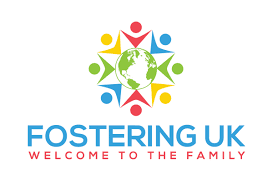What is the difference between fostering and Adoption?
When looking at how to become a foster parent, you may come across the terms "therapeutic care," "foster family home," "kinship care," and "adoption" as alternatives to or collaborations with foster care. What do these expressions actually mean?
Caring for Children
If you're considering being a foster parent, sign up with UK Fostering. Let's start by talking about what "foster care" is and the principles that guide its goals. Foster care is the temporary, alternative care provided to a child who has been removed from their parent(s) or guardian(s) and placed in foster homes, whether related or not, residential settings, daycare institutions, or even emergency shelters. No matter if the placement has a license or is being paid for the child's upkeep, foster care is defined. Join UK Fostering to begin your fantastic foster parent journey.
Fostering that is therapeutic
A child in foster care who needs longer-term care because they have more severe physical, emotional, medical, or behavioral issues than the average child is said to be in therapeutic foster care. This type of foster care in the UK calls for community services to be a part of the child's treatment team, as well as specific training in addition to certification for foster parents.
Family Foster Home:
Foster care is what the foster family home represents. The foster family is made up of the foster parent(s) who are responsible for the child's full-time, daily care at their residence. To ensure that children are placed in secure environments and to qualify for federal money to aid with the expense of foster care, state agencies must require training and certification of the carers. As a result, the foster family and the place of residence must comply with state regulations in order to be accepted or granted a license. Our foster parents receive fostering support from UK Fostering around the clock.
Kinship Care
Studies show that when children who have been removed from their homes are placed in the homes of relatives as opposed to strangers, the youngsters experience less distress. Foster care is given to a relative's child as part of kinship care. Although keeping the child with his or her parents or guardians is the ultimate goal, keeping the child with family comes first. If placing the child with relatives is not possible, they may be placed in a group home or a home with a non-kin foster family.
Studies show that when children who have been removed from their homes are placed in the homes of relatives as opposed to strangers, the youngsters experience less distress. Foster care is given to a relative's child as part of kinship care. Although keeping the child with his or her parents or guardians is the ultimate goal, keeping the child with family comes first. If placing the child with relatives is not possible, they may be placed in a group home or a home with a non-kin foster family.
Once the county and state have been granted legal custody of the child, kinship care can be formally established. The guardian relative will then be paid a monthly stipend to assist with child-rearing costs. The agreement states that kinship care may be required to meet the same certification and clearance standards as a foster family home.
Adoption
Foster parents have no legal parental rights over the foster child temporarily in their care. The aim of foster care is, in reality, to eventually reunite the child with their birth family when it is safe to do so. The adoption agency and adoptive parent, on the other hand, make a concerted effort to ensure that the child becomes a permanent member of their family when a child is placed for adoption. To complete all responsibilities associated with adoption, the adoptive parent will follow a specific procedure.
Because they are unable to reconcile with their birth parents, some foster children may reside in foster care for a prolonged period of time. Even though it's never the plan, there are times when it's necessary to do this in order to find the child their forever home.
Not all foster children or foster carers will be available for adoption. Nonetheless, for foster parents who decide to do so, fostering a child opens up options for adoption. Investigating this potentially life-changing goal involves deep reflection as well as interactions with the foster agency. These are the initial crucial actions.
UK Fostering specializes in providing foster care services, and the company is constantly looking for people who wish to be caring foster parents. For additional details, please get in touch with UK Fostering.




Comments
Post a Comment